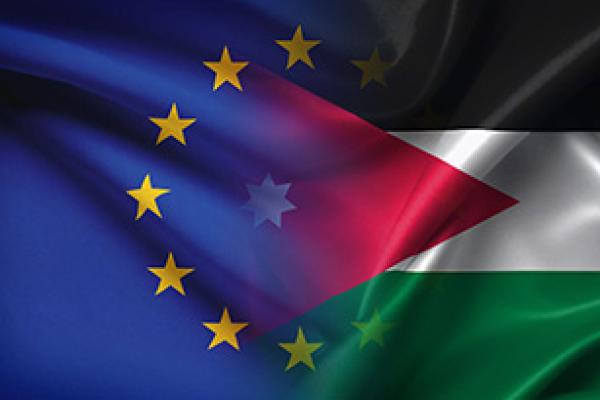Latest news

Today, during King Abdullah II's visit to Brussels, the European Union and Jordan are taking their unique relationship to the next level by signing a Strategic and Comprehensive Partnership.

Today, Commissioner for the Mediterranean, Dubravka Šuica, signed the Joint Declaration on the Strategic and Comprehensive Partnership with Jordan, officially elevating the EU relationship with the country. The signature follows a bilateral meeting between President of the European Commission, Ursul
- NDICI-GEO_NEAR/2023/ACT-61816 - ANNEX I - Education for All – Inclusive and quality education for refugees and vulnerable children and youth in host communities in Jordan
- NDICI-GEO-NEAR/2023/ACT-61729 - ANNEX II - EU Support to Social Inclusion in Jordan under the Syria Response
- NDICI-GEO-NEAR/2023/ACT-61728 - ANNEX III - EU support to solid waste management programme in response to the Syrian crisis in Jordan
- NDICI-GEO-NEAR/2023/ACT-61727 - ANNEX I - Action Document for “Education for All”
- NDICI-GEO-NEAR/2023/ACT-61840 - ANNEX II - Action Document for Technical and Vocational Training (TVET) for All in Jordan (TVET4All)
- NDICI-GEO-NEAR/2023/ACT-61733 - ANNEX III - Action Document for EU Support to Sustainable Cultural Heritage
- NDICI-GEO-NEAR/2022/ACT-61209 - Annex 1 - EU Support to livelihoods under the regional response to the Syrian crisis
- NDICI-GEO-NEAR/2022/ACT-60901 - Annex 2 - EU Support to inclusive, equitable and quality education for Syrian refugees and vulnerable children and youth in host communities in Jordan.
- NDICI-GEO-NEAR 2022/ACT-60899 - Annex 3 - Strengthening access to quality primary health care services for Syrian refugees and host communities in Jordan.
ENI 2014/C(2014)5983/Annual Action Programme and Umbrella for Jordan
- ENI 2014/033672/Jordan/Skills for Employment and Social Inclusion
- ENI 2014/033664/Jordan/Public finance and public administration reforms
ENI 2014/C(2014)6316/Annual Action programme for Jordan (Part 2)
ENI 2014/C(2014)9141/Jordan/Annual Action Programme 2014 (part 2)/modification
ENPI 2011/C(2011)5702/Annual Action Programme for Jordan
- ENPI 2011/022723/Jordan/SAPP III
- ENPI 2011/022722/Jordan/Second phase of education reform
- ENPI 2011/022721/Jordan/Renewable Energy and Energy Efficiency
ENPI 2011/C(2013)6380/Jordan/Annual Action Programme/Modification
ENPI 2011/C(2011)8349/Annual Action programme for Jordan (Part 2)
ENPI 2010/C(2010)7441/Annual Action programme for Jordan
- ENPI 2010/021931/Jordan/Democratic Governance
- ENPI 2010/021930/Jordan/Promoting Local Economic Development in Jordan (PLEDJ)
- ENPI 2010/021928/Jordan/Water Resources Security
- ENPI 2010/021932/Jordan/Public Financial Management Reform
ENPI 2010/C(2011)7348/Jordan/2010 Annual Action Programme/Modification
ENPI 2010/C(2010)5353/Jordan/2010 Annual Action Programme/Amendment



